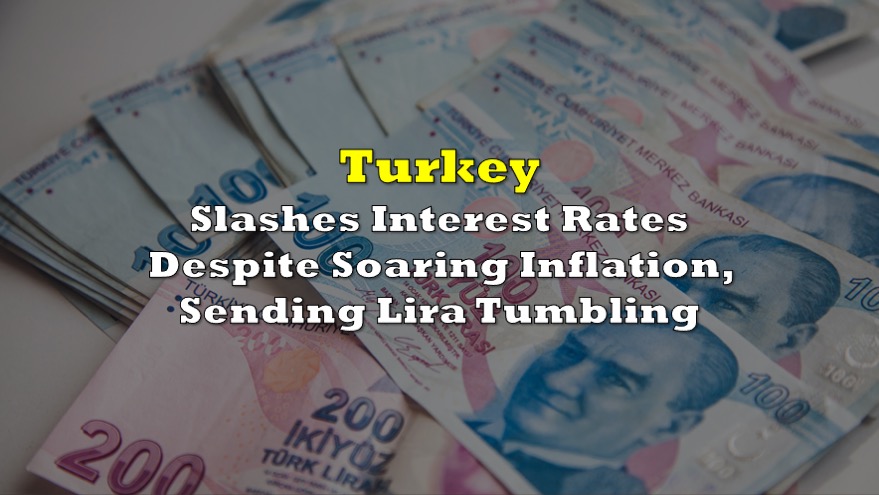Turkey’s lira was sent plummeting to a new record low on Thursday, after the country’s central bank slashed its benchmark rate in baffling response to rising inflation.
The central bank’s Monetary Policy Committee cut its one-week repo rate from 19% to 18% on Thursday, after Turkey’s inflation rate unexpectedly jumped to 19.25% in August, causing the country’s real interest rate to slump into negative territory for the first time since October 2020. The central bank’s governor, Sahap Kavcioglu, who was only appointed to the position in March after the former governor was ousted for raising borrowing costs, has been under increased pressure from President Recep Tayyip Erdogan to scale back the benchmark rate.
The latest shift in policy comes as Kavcioglu adapts a more dovish stance, marking the first sign of monetary easing since May 2020, and an end to a contraction cycle that began 12 months ago. In an effort to better justify the reduced rate, the governor strategically used core inflation— which does not account for volatile components such as food an energy— as the reference benchmark, which stood at around 17% last month.
Kavcioglu appears to have taken the unconventional theory preached by Erdogan that elevated borrowing costs create inflation to heart, and delivered on the president’s previous promises on lower rates and reduced inflation come September. “Kavcioglu will have been well aware of what happened to previous governors that defied President Erdogan’s desire for rate cuts and may have moved on policy to save his job,” explained Capital Economics economist Jason Tuvey in a note to clients seen by the Financial Times.
The central bank also downplayed the sources of rising inflation, instead attesting the elevated price pressures to transitory forces such as supply shocks and pent-up demand.
Nonetheless, Kavcioglu’s latest move caused the lira to sink by as much as 1.5% to a record low of around 8.75 per US dollar at the time of writing.

Information for this briefing was found via the Financial Times. The author has no securities or affiliations related to this organization. Not a recommendation to buy or sell. Always do additional research and consult a professional before purchasing a security. The author holds no licenses.









